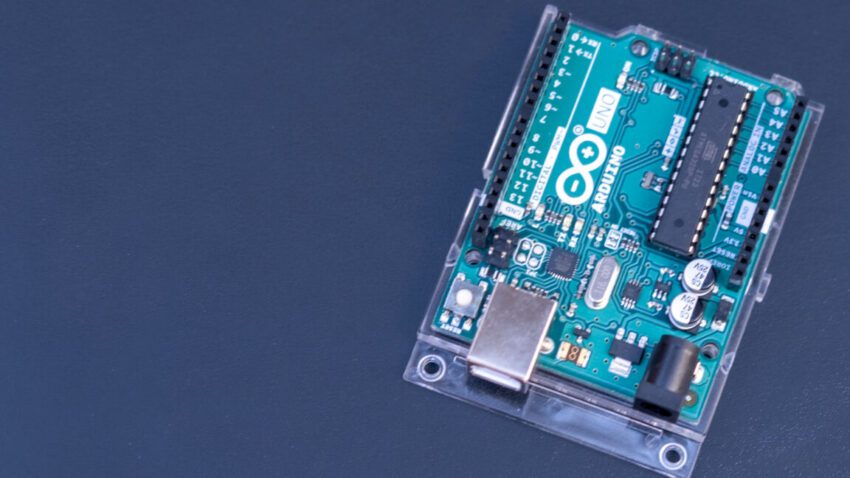
arduino s new terms of service worries Arduino’s recent update to its terms of service has raised significant concerns among hobbyists and members of the maker community, particularly in light of Qualcomm’s impending acquisition of the company.
arduino s new terms of service worries
Background on Arduino and Its Community
Founded in 2005, Arduino has become a cornerstone of the open-source hardware movement, providing accessible tools for creators, educators, and hobbyists. The platform allows users to build interactive electronic projects, ranging from simple LED displays to complex robotics. Its open-source philosophy has fostered a vibrant community that thrives on collaboration and innovation.
Arduino’s hardware and software are designed to be easily modified and shared, which has encouraged a culture of experimentation and learning. This ethos has not only empowered individual creators but has also led to the development of countless projects that have contributed to the maker movement. The community’s commitment to open-source principles has been a significant factor in Arduino’s success, attracting a diverse user base that includes students, engineers, and artists.
Recent Changes to Terms of Service
In November 2025, Arduino updated its terms of service (ToS) and privacy policy, coinciding with Qualcomm’s announcement of its acquisition of the company. This timing has led many to speculate about the implications of the acquisition on Arduino’s open-source model. The updated ToS includes several notable changes, but the most controversial is a clause that restricts users from reverse-engineering the platform.
Key Changes in the Terms of Service
The specific clause that has raised eyebrows states:
User shall not:
- translate, decompile or reverse-engineer the Platform, or engage in any other activity designed to identify the algorithms and logic of the Platform’s operation, unless expressly allowed by Arduino or by applicable license agreements.
This addition has sparked fears that Arduino is moving away from its foundational principles of openness and collaboration. Many in the community believe that this change could stifle innovation and limit the ability of users to modify and improve upon Arduino’s offerings.
Community Reactions
The reaction from the maker community has been swift and vocal. Prominent figures and organizations within the open-source hardware space have expressed their concerns. Adafruit, a well-known distributor and manufacturer of open-source hardware, has been particularly outspoken. The company has emphasized that the new terms could undermine the collaborative spirit that has defined Arduino since its inception.
Concerns from Hobbyists and Developers
Many hobbyists fear that the new terms will create barriers to experimentation and learning. Reverse engineering is a critical aspect of the maker culture, allowing users to understand how devices work and to build upon existing designs. By prohibiting this practice, Arduino may inadvertently discourage users from engaging with the platform in meaningful ways.
Some developers have also raised concerns about the implications for third-party hardware and software integrations. Arduino’s ecosystem relies heavily on community contributions, and limiting reverse engineering could hinder the development of compatible tools and libraries that enhance the platform’s functionality.
Arduino’s Response
In response to the backlash, Arduino published a blog post addressing the community’s concerns. The company clarified that the intention behind the new terms is not to restrict creativity but to protect its intellectual property and ensure compliance with applicable laws.
Clarification on Reverse Engineering
Arduino stated that the reverse-engineering clause is intended to prevent unauthorized copying of its proprietary technology. The company emphasized that it remains committed to its open-source roots and will continue to support community-driven projects. However, the language in the ToS has left many feeling uncertain about the future of Arduino’s open-source model.
Implications of the Acquisition
Qualcomm’s acquisition of Arduino has added another layer of complexity to the situation. As a major player in the semiconductor industry, Qualcomm’s interests may not align with the open-source ethos that Arduino has championed. This concern is compounded by the fact that large corporations often prioritize profit over community engagement, leading to fears that Arduino could shift its focus away from its user base.
Potential Impact on Innovation
The implications of these changes could be far-reaching. If Arduino begins to prioritize proprietary technology over open-source collaboration, it may alienate its core user base. This shift could stifle innovation within the community, as fewer individuals may feel empowered to experiment with Arduino’s platform.
Moreover, the fear of legal repercussions from violating the new terms may deter users from exploring the full potential of Arduino’s offerings. This could lead to a decline in community-driven projects and a reduction in the overall vibrancy of the maker culture that Arduino has helped foster.
Stakeholder Perspectives
Various stakeholders within the tech and maker communities have weighed in on the situation. Some industry experts argue that while protecting intellectual property is essential for companies, it should not come at the expense of the open-source principles that have driven Arduino’s success.
Support for Open Source
Advocates for open-source hardware have emphasized the importance of maintaining a balance between protecting proprietary technology and fostering a collaborative environment. They argue that Arduino’s success has been built on the contributions of its community, and any move away from this model could have detrimental effects.
Furthermore, some stakeholders have called for greater transparency from Arduino regarding its future direction under Qualcomm’s ownership. As the maker community continues to voice its concerns, it remains to be seen how Arduino will navigate the challenges posed by the acquisition and the updated terms of service.
The Future of Arduino
As Arduino grapples with the implications of its new terms of service and the Qualcomm acquisition, the future of the platform remains uncertain. The company’s commitment to open-source principles will be tested as it seeks to balance the interests of its community with the demands of its new corporate owner.
Community Engagement Moving Forward
For Arduino to maintain its position as a leader in the open-source hardware space, it will need to actively engage with its community and address their concerns. This could involve revisiting the language in its terms of service to ensure that it aligns with the values of openness and collaboration that have defined the platform.
Additionally, Arduino may need to establish clearer communication channels with its user base to foster trust and transparency. By involving the community in discussions about its future direction, Arduino can work to rebuild confidence among its users and ensure that it remains a vital part of the maker movement.
Conclusion
The recent changes to Arduino’s terms of service have sparked significant concern among hobbyists and members of the maker community. As the company prepares for its acquisition by Qualcomm, the implications of these changes could reshape the future of the platform. It is essential for Arduino to navigate this transition carefully, balancing the need for intellectual property protection with its commitment to open-source principles. The ongoing dialogue between Arduino and its community will be crucial in determining the platform’s trajectory in the coming years.
Source: Original report
Was this helpful?
Last Modified: November 25, 2025 at 3:36 am
3 views















